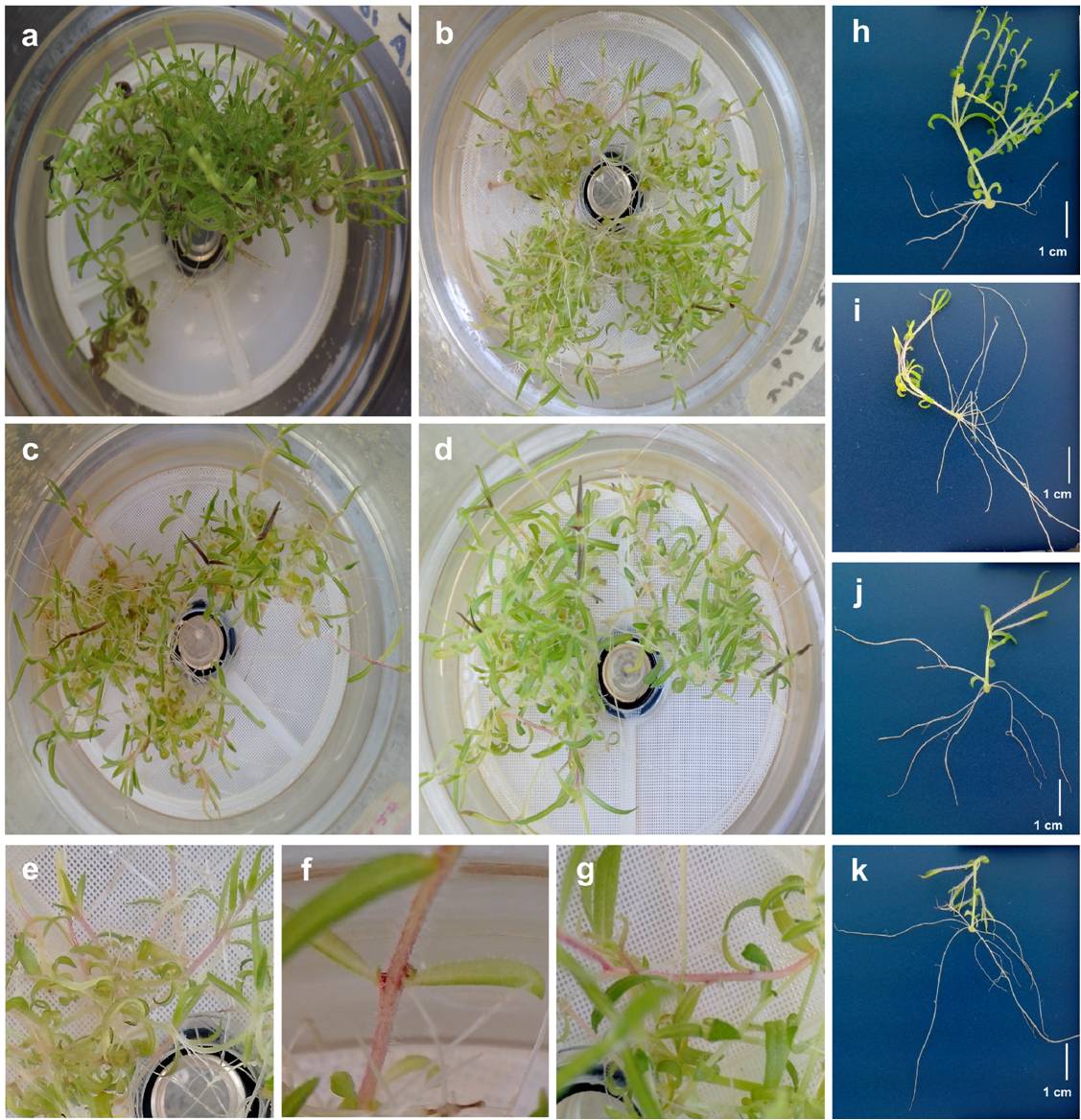 |
|
Castilleja tenuiflora Benth. is a medicinal plant that synthesizes polyphenolic compounds such as phenylethanoid glycosides (PhGs), flavonoids, lignans, and iridoid glycosides with pharmacological activities. In vitro culturing of plants combined with a stress as nutrient deficiency has been shown to be a good biotechnological strategy to stimulate secondary metabolism. Our aim was to evaluate the responses of C. tenuiflora plants to stress by nitrogen (N) deficiency and starvation in a temporary immersion system. The treatments were plants grown in B5 liquid medium with 25.74 mM (control), 1.32, 0.66 (deficiency) and 0 mM (starvation) N concentration. Matter and shoot multiplication rate decreased over 40%, chlorophylls content decreased, roots length increased, and leaves showed chlorosis. In deficiency conditions (0.66 mM N), PAL enzyme was more active and total phenolic compounds were enhanced. At day 21: maximum concentration of verbascoside, isoverbascoside and aucubin was observed in 0.66, 1.32 and 0 mM N treatments (283 ± 0.5, 90 ± 0.3 and 12.5 ± 0.1 mg g-1 DM, respectively) and presence of anthocyanins was evident in stems. Under N deficiency, the first defense response is an oxidative burst, PhGs and iridoids are powerful antioxidants; thereby, the increase of these compounds and de novo synthesis of anthocyanins relief oxidative damage. Our results show that in vitro culture in a temporary immersion system combined with N deficiency is an excellent method to increase secondary metabolites in C. tenuiflora plants.
Keywords: abiotic stress, Aucubin, nitrogen starvation, phenylethanoid glycosides, RITA® bioreactor.
|
|
 |

